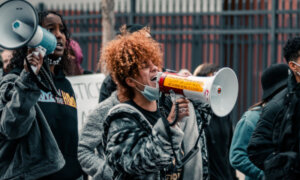March 31, 1973
FACTS
Respondent Judge Onofre Villaluz tried petitioners Manuel Mateo, Jr., Robert Martinez, Enrique Concepcion, and Esmeraldo Cruz for Robbery in Band with Homicide.
Later on, a certain Rolando Reyes executed an extrajudicial statement, which he (Reyes) subscribed and sworn to before Judge Villaluz. In his statement, he admitted to having participated in the crime together with the petitioners.
Meanwhile, the petitioners filed a Motion to Dismiss, but Judge Villaluz deferred it until after the prosecution had presented and rested its evidence against Reyes, who was tried for the same offense, but in a separate proceeding.
When the court called upon Reyes to testify as an additional witness for the prosecution, he impugned his written declaration, saying that he executed it because of a threat by a government agent.
Upon learning about this, the petitioners filed a motion that Judge Villaluz should inhibit himself; however, he denied it.
Hence, they filed a petition for prohibition against him.
The petitioners contend that Reyes’ repudiation would not sit well with Judge Villaluz because he (Judge Villaluz) could not decide the case without impartiality since he subscribed Reyes’ extrajudicial statement and that he would have to pass upon that repudiation.
He, however, insisted he could decide the case impartially.
ISSUE
Whether or not the act of Judge Villaluz in subscribing the extrajudicial statement of Reyes contradicts the principle of cold neutrality of an impartial judge.
RULING
YES, the act of Judge Villaluz in subscribing the extrajudicial statement of Reyes contradicts the principle of cold neutrality of an impartial judge.
A judge should strive to be at all times wholly free, disinterested, impartial and independent. Elementary due process requires a hearing before an impartial and disinterested tribunal.
Lower court judges are well-advised to limit themselves to the task of adjudication and to leave to others the role of notarizing declarations. The less an occupant of the bench fritters away his time and energy in tasks more incumbent on officials of the executive branch, the less the danger of his being a participant in any event that might lend itself to the interpretation that his impartiality has been compromised.
DISPOSITIVE PORTION
WHEREFORE, the petition for prohibition granted. The restraining order is issued by this Court on February 25, 1972 is made permanent. Without pronouncement as to costs.
Full text of this decision.
























